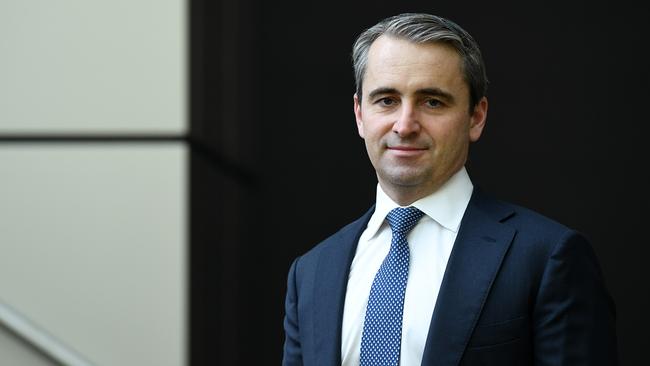Commonwealth Bank full-year 2019 profit drops 4.7pc
Full year profit for Australia’s biggest bank has fallen more than expected, as it flagged a move to take on Afterpay.

Commonwealth Bank of Australia has reported a bigger than expected decline in annual profit to $8.49 billion, as it flagged capital management initiatives were on the board’s agenda.
CBA has also unveiled a big push into the global buy now pay later industry, which has potential to dramatically shake up the local market.
The bank’s cash net profit fell 4.7 per cent to $8.49 billion, reflecting lower operating and net interest income, the bank said in an ASX statement.
The result was also marred by a 2.5 per cent increase in operating expenses, due to costs including higher customer remediation payments stemming from the Hayne royal commission and the addition of 600 compliance staff.
CBA’s share price slumped almost 3 per cent to $77.47 in early trading, reflecting a two month low, but later recovered to be trading around $78.65 at lunchtime.
Analysts were expecting an annual profit of $8.59 billion.
Morgan Stanley’s institutional equities desk labelled the result “a nasty miss”.
Credit Suisse analyst Jarrod Martin said the bank had delivered “a disappointing result given the expectations that had been built in the market around costs and capital management that now appear delayed”.
Citi analyst Brendon Sproules said the bank had reported “a soft result with difficult headwinds on both revenues and costs”. Weak revenue was a “clear issue”, he said. “With little further detail on the longer term cost base or potential capital management, this result will leave the market stretching for positives for a stock trading greater than 16 times price-to-earnings ratio,” Mr Sproules said.
CBA chief executive Matt Comyn declared a final dividend of $2.31, leaving the full-year payment flat at $4.31. While not announcing any immediate new capital returns to shareholders, he said such measures were being actively reviewed by the board.
Mr Comyn also signalled that signs of life were returning the nation’s flailing housing market.
“We are in a lower growth environment, but we are seeing improvement in the housing market, including improved clearance rates, stabilisation of prices in Sydney and Melbourne and slightly higher housing credit growth,” he said.
Mr Comyn was paid $4.36 million in the year to June 30, a figure that included base pay of $2.2 million, a cash bonus of $747,450 and a long-term at risk incentive of $1.2 million.
His 2019 remuneration is an increase on Mr Comyn’s total remuneration of $2.96 million in the prior financial year, when his bonus was forfeited.
The ASX announcement said CBA’s board was considering potential capital management initiatives including an off-market share buyback. That would follow the $4 billion sale of the bank’s global asset management and the pending divestment of its life insurance arm.
CBA also told investors it was moving to close its Financial Wisdom planning business, but remained committed to an “orderly exit” of Colonial First State and mortgage broking interests Aussie Home Loans and a stake in Mortgage Choice.
The estimated pre-tax costs of closing Financial Wisdom are $26 million and CBA said it would stop providing licensee services by June 2020. The bank has already agreed to sell its other financial planning unit Count Financial.
The bank’s full-year statutory profit fell 8.1 per cent to $8.57 billion.
The bank’s results announcement also revealed the bank has committed an investment of $US100 million in Swedish payments group Klarna Holding AB, as part of its $US460 million capital raising round.
The move foreshadows a move by CBA into the burgeoning buy now, pay later payments market. The move is likely to have implications for locally listed buy now pay later stocks including Afterpay Touch and Zip.
“We will become Klarna’s exclusive partner in Australia and New Zealand and intend to further invest at the parent and local level to support this partnership,” CBA said.
Klarna has more than 60 million customers and 130,000 merchants and generated $US627 million in revenue in 2018.
The Australian last week flagged that the Asia-Pacific region was part of Klarna’s strategic growth agenda.
Klarna is backed by investors such as international technology investment firm Atomico and venture capital houses Sequoia Capital and Permira. Payments giant Visa, which announced its own ambitions in the buy now, pay later space in June, is also listed as an investor on Klarna’s website.
Meanwhile, CBA’s common equity tier one ratio printed 60 basis points higher at 10.7 per cent as at June 30, which is above the banking regulator’s “unquestionably strong” threshold. That ratio doesn’t include a further boost that will come to core capital from the sale of CBA’s global asset management arm, which completed last week.
CBA’s overall operating income fell 2 per cent to $24.4 billion, as net interest and fee income was weaker.
The bank’s net interest margin, what it makes on loan less funding costs, came in at 2.1 per cent, which was flat on the prior six months but five basis points lower than June 30 last year.
CBA also warned of challenges ahead including further cuts to interest rates which would put further pressure on margins and its deposit book.
The bank said the two 25 basis point interest rate cuts by the Reserve Bank in June and July would weigh on the group net interest margin by four basis points this financial year.
CBA’s remediation bill for customers came in at almost $1 billion for the year ended June 30.
Return on equity came was lower at 12.5 per cent.





To join the conversation, please log in. Don't have an account? Register
Join the conversation, you are commenting as Logout